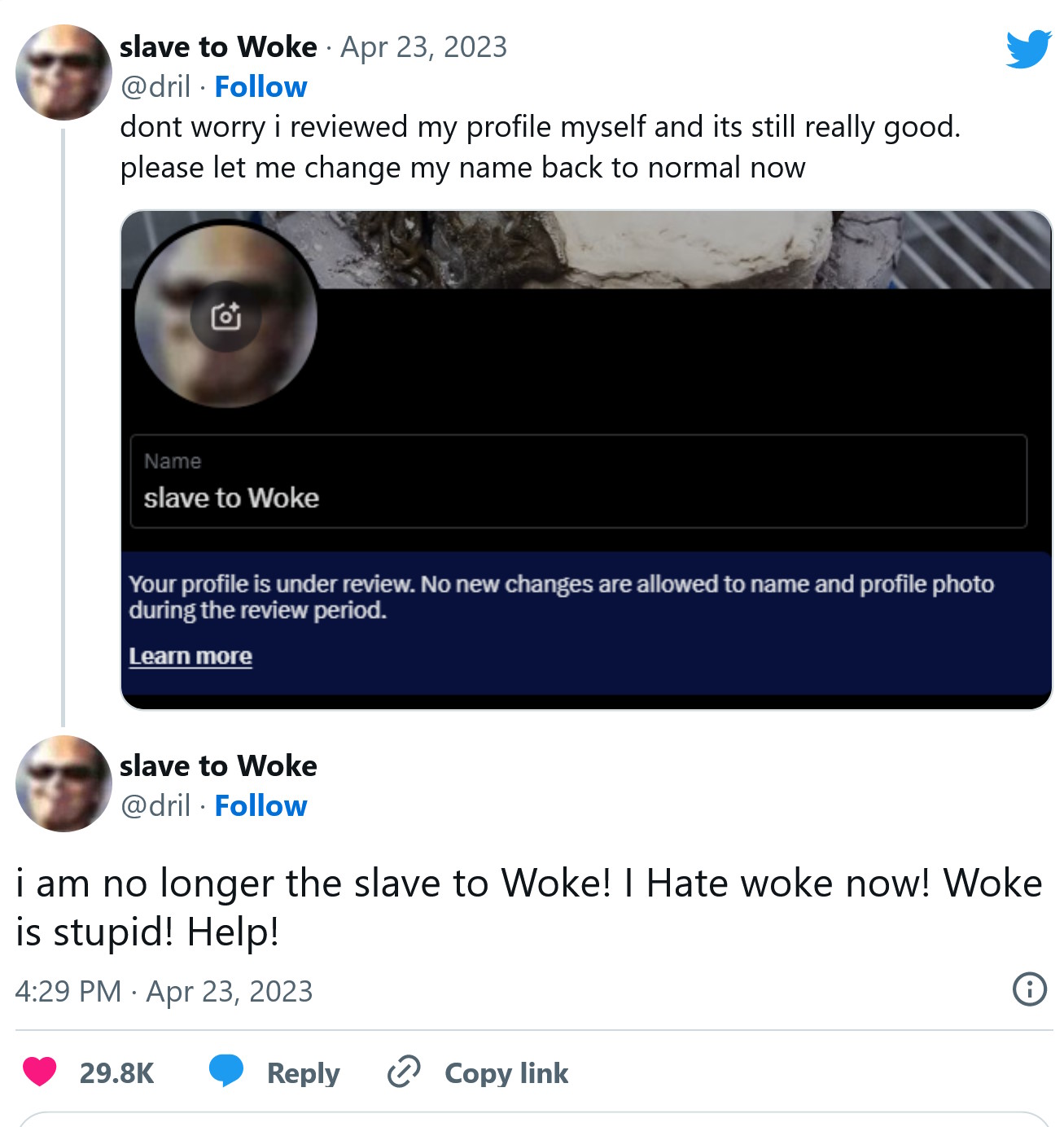Epic Games boss defends Twitter, calls #BlocktheBlue supporters 'losers and goons'
Tim Sweeney weighed in on the furor over Twitter's blue checkmarks this weekend.

Epic Games boss Tim Sweeney has weighed in on the discourse about blue checkmarks on Twitter, saying that people supporting the "Block the Blue" campaign are "losers and goons" who are trying to exclude people from "cool kid events."
It's fair to say that Twitter has been a goat rodeo since Elon Musk took control of the company in late 2022, but things took a turn for the even stupider last week. After months of waffling and fake-outs, Twitter finally eliminated legacy verification checks, meaning that the only people with the little checkmarks on their accounts were those who were paying $8 per month for a Twitter Blue subscription.
A few of the old check-holders remained: Xbox men Phil Spencer and Larry Hryb, for instance, kept their blue checks because they're affiliated with the official Xbox account, which now has a gold check, signifying that it's verified as "an official organization on Twitter." For the most part, though, the "verified" blue checks were gone.
Rather than encouraging people to sign up for Twitter Blue, though, the new program had the opposite effect. Celebrities immediately and easily turned their backs on the whole thing, leading right-wing figures who had previously complained about being 'censored' on Twitter started complaining that the new program they'd embraced now had no value. Many seemed genuinely baffled by the notion that celebrities and other high-profile Twitter users want nothing to do with it: "Hollywood celebrities are showing exactly who they are right now - arrogant elitist snobs worth $200 million dollars who won't pay $8 because they think they're better than everyone else," one said, missing the point in genuinely stunning fashion.
Out of all this chaos arose the #BlocktheBlue campaign, which is a sort of boycott aimed at improving the quality of the Twitter experience by auto-blocking Twitter Blue subscribers. The idea actually goes back to last year, when dril, one of Twitter's best-known (and straight-up best) users, said he would "absolutely block on sight" anyone subscribed to Twitter Blue.
you just paid $8 to eat my ass stupid #BlockTheBlueNovember 9, 2022
With any usefulness of the blue checkmark now gone, it's now more than just a joke—you can actually get a Chrome extension that will auto-block any Twitter Blue subscriber who appears in your feed. But Sweeney, who founded Epic Games in 1991 and now has an estimated net worth of $7.6 billion, doesn't think that's the way to go.
"People in this #BlockTheBlue pressure campaign are losers and goons," Sweeney tweeted over the weekend. "They're the cool kids from junior high who worked to exclude we nerds from cool kid events, plus the losers who joined in to gain cred. The elite-only verification system sucked, been criticizing it since 2018.
Keep up to date with the most important stories and the best deals, as picked by the PC Gamer team.
"An online community like this should be a meritocracy, where everyone has an equal chance, and merit is earned rather than anointed by a corporation. Old school Twitter had found a great expression of merit with following & retweeting. The best rose to the top. Then someone well-meaningly built a system for preventing impersonation through verification. But they broke the meritocracy with a policy deeming verification only for elite 'noteworthy' users, while letting Twitter employees hand out verification to their friends as a perk."
An online community like this should be a meritocracy, where everyone has an equal chance, and merit is earned rather than anointed by a corporation. Old school Twitter had found a great expression of merit with following & retweeting. The best rose to the top.April 22, 2023
Sweeney clarified that he doesn't think the new system is much better: What he really wants to see is "proper identity verification as a service like old Twitter had, but opened up to everyone affordably like new Twitter (or free)," saying that such an option would represent "the best of both worlds." He also said that ideally, Twitter's verification, curation, and subscription systems would all work independently of one another.
"My criticism isn't directed towards folks who choose not to subscribe, but advocates of boycotting every person on Twitter who isn't boycotting Twitter," Sweeney said. "That seems extreme."
I'm not so sure it is. The value of blue checks was gutted by the subscription program, which lets anyone with eight bucks and a phone get one—and in turn makes sharing space with them that much less desirable a prospect. Sweeney bemoaned what he predicted will be increased political polarization as a result of the campaign, which he said aims to "bully people who signed up for democratized Twitter verification into leaving so they can feel like part of your 'in' group," but I think it's more an inverse of the famous XKCD comic on free speech: If you invite the worst sorts of people into your home, you shouldn't be surprised when everyone else leaves.
Musk's response to the #BlocktheBlue campaign over the weekend has not inspired confidence in his ability to chart a rational way forward: Rather than addressing legitimate criticism, he began returning blue checks to some celebrities, without their knowledge or permission, in order to dissuade people from auto-blocking blue-checked subscribers. This resulted in figures including Jamal Khashoggi, Anthony Bourdain, Chris Cornell, and Norm MacDonald—all of them dead—suddenly appearing as active Twitter Blue subscribers. It's the sort of thing that would be tremendously embarrassing for anyone with a sense of shame; in Musk's case, however, it had little visible effect aside from sparking a brief, entirely one-sided beef between him and dril, who spent the weekend changing his Twitter handle in order to dodge the blue check—which, in a fitting coda to this whole ridiculous ordeal, is why dril is currently named "slave to Woke."


Andy has been gaming on PCs from the very beginning, starting as a youngster with text adventures and primitive action games on a cassette-based TRS80. From there he graduated to the glory days of Sierra Online adventures and Microprose sims, ran a local BBS, learned how to build PCs, and developed a longstanding love of RPGs, immersive sims, and shooters. He began writing videogame news in 2007 for The Escapist and somehow managed to avoid getting fired until 2014, when he joined the storied ranks of PC Gamer. He covers all aspects of the industry, from new game announcements and patch notes to legal disputes, Twitch beefs, esports, and Henry Cavill. Lots of Henry Cavill.

